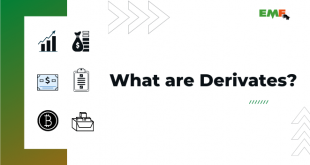Retail Brokers and Retail Traders
As forex becomes increasingly mainstream, more amateur and professional
investors are rushing to join in. Households and small non-bank institutions
now account for an estimated $300 billion in global forex volume,
representing close to 10% of overall volume and market growth of 400%
from 2007! Japanese retail traders are especially active in the forex market
and may account for as much as 30% of trading in the Japanese yen. In fact,
this phenomenon has become so widespread that the media has begun to
paint a picture of Japanese women—referred to as Mrs. Watanabes—as
housewives that sit at home trading forex from their computers while their
husbands are at work.
Retail forex brokers
Retail forex brokers have responded by becoming more sophisticated and
more transparent. They have developed proprietary systems that rival those
developed by broker-dealers or engage in white label licensing of existing
multi-dealer systems. In fact, some retail brokers have been able to lure small
institutional customers away from broker-dealers. All have expanded their
operations to offer more currencies, better coverage, lower spreads, and more
tools for traders. In 2010, two forex brokers
(broker name
) became the first in the industry to become publicly listed companies,
and a handful of others are reportedly considering a similar move.
Meanwhile, discount brokers have quietly expanded into forex. Ameritrade
entered the forex market through its purchase of ThinkorSwim in 2009.
Charles Schwab is using a similar strategy for gaining access to forex
customers, with its acquisition of OptionsExpress. Overall, the industry is
undergoing a period of rapid consolidation, which should ultimately produce
a dozen or so solid contenders.
Individuals
It could also be argued that individuals participate in the forex market on a
non-speculative basis. When consumer choices are framed in economic
terms, consumers often respond by buying whatever is cheapest. Thus,
fluctuations in exchange rates will cause important changes in travel and
consumption patterns. The silver lining of a battered exchange rate is often a
pickup in exports. Due to the recent multi-year decline of the US dollar, for
example, US prices became relatively cheaper in terms of other currencies.
As a result, US products became more attractive to foreign buyers, and
multinational companies responded by relocating assembly plants to the
United States. Overseas tourists have begun to visit the United States in
droves, and Canadian citizens (especially those that reside near the border)
have started taking short trips to the United States for the purpose of
shopping
Remittances, on the other hand, typically flow in the opposite direction.
Migrant workers in countries with strong currencies will remit part of their
salaries to countries whose currencies are relatively weak. In this way,
migrant workers are also tailoring their economic behavior so as to take
exchange rates into account. As I will show in Chapter 3, the pull that this
exerts on forex markets is not insignificant.
Central Banks
Most currency traders consider the role of central banks only insofar as their
policy actions indirectly influence exchange rates. In reality, however,
central banks are among the largest and most active participants in the forex
markets. During certain years, the world’s largest banks may buy hundreds of
billions of dollars worth of foreign currency.
Despite preaching laissez-faire economics, many central banks closely
monitor the value of their respective currencies. When exchange rates deviate
too far from a targeted value, some central banks will then go so far as to
intervene in forex markets. They do this by buying or selling their home
currency, causing it to appreciate or depreciate, respectively. These programs
of intervention inevitably fail over the long-term, but over the short-term
they can be very effective. That’s probably because central banks have
control over the money printing presses and nearly unlimited budgets.
Speculators understand this and may not wish to take positions that aren’t
consistent with the short-term goals of the central bank.
In the process, central banks may amass hundreds of billions of dollars in
foreign exchange reserves. The allocation of these reserves can have a direct
impact on forex markets, as will be discussed later.
Regulation
It was only in the wake of the financial crisis that governments became
serious about regulating the forex market—especially the retail side of the
market. Due to its regional fragmentation, the market naturally resists
regulation. A second problem is that the forex is traded through a variety of
financial instruments, and each instrument is technically regulated by a
different government bureau.
The Dodd-Frank Consumer Protection Act of 2010 was intended to resolve
some of these jurisdictional issues. The Commodity Futures Trading
Commission (CFTC) has taken the lead and is now the official regulator of
the forex spot market. After several rounds of negotiations and a public
comment period, the CFTC formally released a set of new regulations in late
2010.
As a direct result of these new regulations, all forex firms are now required to
register with the National Futures Association (NFA), either as futures
commission merchants (FCMs) or as retail foreign exchange dealers
(RFIDs). Registering institutions are required to “maintain net capital of $20
million plus 5 percent of the amount, if any, by which liabilities to retail
forex customers exceed $10 million”
in order to protect traders against the
possibility of broker bankruptcy. In addition, “persons who solicit orders,
exercise discretionary trading authority or operate pools with respect to retail
forex also will be required to register, either as introducing brokers,
commodity trading advisors, commodity pool operators (as appropriate) or as
associated persons of such entities.”6 Forex brokers must also “disclose on a
quarterly basis the percentage of non-discretionary accounts that realized a
profit and to keep and make available records of that calculation.”(Actually,
this calculation has become an excellent tool for first comparing and then
selecting a broker, as will be shown in Chapter 8.) Finally, American forex
firms are basically prohibited from offering commodities trading and
contracts for difference (CFD). Because of their derivative nature, there are
too many restrictions on trading them over-the-counter (OTC).
These new rules have also been accompanied by strict enforcement. Firms
that have failed to register are investigated and prosecuted. The NFA has also
been quick to bring high-profile cases against legitimate firms. In 2011,(Broker name)
was fined a record $8 million for illegally profiting from movements
in exchange rates, and ordered to pay an additional $8 million in restitution
to customers.
The majority of retail forex brokers
The majority of retail forex brokers have accepted the registration
requirements. (Brokers Name) is the only major forex broker that is exempt from
registering; as a bank, it is not under the same regulatory purview as forex
brokers.) In fact, many of the brokers lobbied aggressively for the new
regulations with the intention of raising the barriers to entry and helping
existing brokers consolidate their market share. The registration requirements
have also brought much-needed credibility to an industry severely lacking in
it and a framework for dispute resolution.
Exchange-Traded Funds (including currency ETFs) are regulated by the
United States Securities and Exchange Commission (SEC), while the
stockbrokers that facilitate their trading are governed by the National
Association of Securities Dealers (NASD) and to a lesser extent by the
Securities Investor Protection Corporation (SIPC).
New Regulations
The one clause in the new regulations that was resisted by brokers and
traders alike prohibits leverage that exceeds 50:1 for major currency pairs
and 20:1 for other currencies. (It should be noted, however, that the CFTC
did not itself specify the currency pairs that fall into each category.) Brokers
were naturally upset that a direct source of profit (and a driver of volume)
was being curtailed. Traders argued that it was an encroachment of
government and threatened to move their accounts to offshore brokers.
Indeed, so-called regulatory arbitrage will always be an issue in forex, as
there will always be US account holders that wish to trade using leverage in
excess of what US brokers are legally allowed to offer. Not only are these
Traders Breaking
traders breaking the law, but they also lose any consumer protection afforded
by the US legal system. In fact, there have been a handful of cases of US
traders experiencing difficulty in withdrawing funds from UK brokers.
Forbes speculated, “These new rules will put a stop to Americans trading
retail forex offshore to evade CFTC rules. That trend picked up the pace in
recent years and it may need to be reversed quickly.”
With the exception of the European Union, other locales are governed by
relatively lax forex regulation. Some have even used the lack of regulation as
a selling point to prospective traders. In some countries—such as
Brazil—foreign investors must pay high tax rates in order to transfer funds
into local currency. In other countries—namely China—forex trading has
been banned completely, usually because it conflicts with the local monetary
policy.
CAN YOU READ these Top best forex brokers CLICK HERE
 Earn Money Forex Best Forex Trading Experience
Earn Money Forex Best Forex Trading Experience







